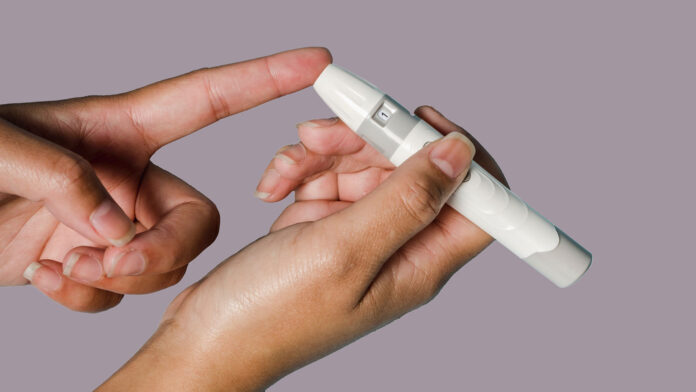Syphilis is easily cured with penicillin, but we are still seeing cases spiking worldwide. Canada, in particular, stands out among affluent nations, clocking a disappointing 13-fold increase in cases over the past five years.
Left untreated, syphilis can trigger a host of medical conditions, including genital sores, vision and hearing loss, heart attack, and dementia. Infections are also almost always passed on to babies during pregnancy, which can cause developmental delays or stillbirth; globally, syphilis is the second leading cause of stillbirth.
But the first step to getting people treated is to find them.
Until now, testing for infection required blood samples to be drawn and sent to a centralized lab — a process that took up to two weeks to complete.
A new clinical trial led by researchers at the University of Alberta and Unity Health Toronto provided the evidence needed for Health Canada to approve a rapid test that enables dual testing for HIV and syphilis with a drop of blood in as little as 60 seconds.
The INSTI Multiplex HIV-1 / HIV-2 / Syphilis Antibody Test is 100 percent accurate in detecting HIV infections, and 98 percent accurate for active syphilis. It looks for antibodies in the blood sample that would indicate an infection.
“Syphilis affects populations who are at times hard to reach — they may be transient, have unstable housing or may have mental health or addictions issues,” said principal investigator Ameeta Singh, clinical professor of medicine at the University of Alberta, in a press release.
“Because of their unstable social situations, they sometimes don’t return for follow-up.”
The small blood sample size means it can be collected by a simple fingerprick, and this is key to reaching marginalized communities because the test can be done anywhere. Getting immediate results also allows healthcare providers to write a prescription for penicillin on the spot to stem the potential for complications and prevent ongoing disease transmission. In just 24 hours of starting treatment, syphilis is rendered non-infectious.
Being able to test for HIV at the same time gives clinicians even more information to help their patients, as syphilis infections increase the risk of HIV infection. When patients are infected with both, they are also at heightened risk of neurological conditions.
While this innovation is a welcome addition to our healthcare toolkit, Canada’s syphilis epidemic also points to hard truths about unequal access to healthcare in our country.
To have the best odds of finding syphilis cases, this clinical trial recruited participants at emergency departments, a First Nations community, a correctional facility, and a sexually transmitted infections clinic in Alberta. The prairie provinces are a hotspot for syphilis, where there are more remote and Indigenous communities, as well as higher rates of crystal meth use.
Canadian pediatricians Jared Bullard and Carsten Krueger have been working with the Public Health Agency of Canada to study babies born with syphilis since 2021. To date, they have logged 165 infants exposed to syphilis in their study, and at least two-thirds came from pregnant people with a history of substance abuse. Furthermore, 45 percent of the pregnant parents identified as Indigenous; Indigenous people make up only 5 percent of the Canadian population.
Pregnant people are routinely screened for syphilis in Canada when they go for checkups. Because syphilis is so easily treated, finding so many infected newborns points to an unacceptable failure to provide pre-natal care to these communities. Moreover, this is likely an underestimate, as most infected newborns would be asymptomatic at birth.
The good news is that this newly approved rapid testing for syphilis and HIV is well positioned to start to close care gaps and build trust in these communities. Culturally appropriate outreach and strategically placed low-barrier clinics could help expand much needed access to care.








































